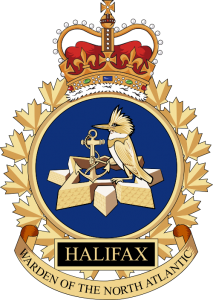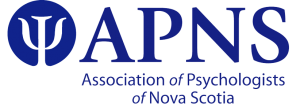 As a large hospitality employer in Halifax, partnerships for talent in the market like the MSVU Co-op & WIL Centre is critical to our success in filling our talent needs annually. The MSVU Co-op & WIL Centre has developed a strong reputation with our property for their commitment to providing high quality, organized, professional and timely support. Their Career Connects Portal is easy to use and communication with the Co-op & WIL Team is professional and timely. Given MSVU’s annual co-op posting timeline (organized for early January) we often interview and hire MSVU students first for co-op roles.
As a large hospitality employer in Halifax, partnerships for talent in the market like the MSVU Co-op & WIL Centre is critical to our success in filling our talent needs annually. The MSVU Co-op & WIL Centre has developed a strong reputation with our property for their commitment to providing high quality, organized, professional and timely support. Their Career Connects Portal is easy to use and communication with the Co-op & WIL Team is professional and timely. Given MSVU’s annual co-op posting timeline (organized for early January) we often interview and hire MSVU students first for co-op roles.
Emily Coady, Director of Human Resources, Halifax Marriott Harbourfront
 Halifax Partnership has hired MSVU public relations co-op students for over 15 years. Students bring fresh thinking and ideas, new skills, and incredible energy to our organization. It’s also an excellent way to attract and retain talent and support young professionals who want to start and grow their careers in our city. I would highly encourage other employers to hire through the MSVU co-op program. It’s a win-win experience.
Halifax Partnership has hired MSVU public relations co-op students for over 15 years. Students bring fresh thinking and ideas, new skills, and incredible energy to our organization. It’s also an excellent way to attract and retain talent and support young professionals who want to start and grow their careers in our city. I would highly encourage other employers to hire through the MSVU co-op program. It’s a win-win experience.
Krista Juurlink, Director, Marketing Communications and Strategic Initiatives, Halifax Partnership
 “Mount Saint Vincent University co-op students are invaluable members of our team at Canadian Forces Base Halifax Public Affairs. They bring energy, ideas and modern approaches to our business each and every day while adding critical capacity to our team. Their adaptability, motivation and respectful demeanor are all qualities that contribute to a positive and productive work environment. Above all, we learn from our students as much as they learn from us while building professional relationships that last well beyond the conclusion of each work term.”
“Mount Saint Vincent University co-op students are invaluable members of our team at Canadian Forces Base Halifax Public Affairs. They bring energy, ideas and modern approaches to our business each and every day while adding critical capacity to our team. Their adaptability, motivation and respectful demeanor are all qualities that contribute to a positive and productive work environment. Above all, we learn from our students as much as they learn from us while building professional relationships that last well beyond the conclusion of each work term.”
Margaret MacDonald Conway, Senior Base Public Affairs Officer, Canadian Forces Base Halifax
 “Our Association has benefitted hugely from the MSVU Co-op Program. It allows us to access students who have expertise in public relations, which fills a knowledge gap in our permanent staff. Co-op students have recent, specialized knowledge to which we do not have ready access. Our experience has been that Co-op students are enthusiastic about their career choice and want to share their knowledge. Our contribution to this partnership is to provide a window into the “real world” applications of public relations in a not-for-profit environment. Co-op students are eager to learn about our organization and the profession we represent. The sharing of expertise between our staff and volunteers and Co-op students enriches both sides of he equation.”
“Our Association has benefitted hugely from the MSVU Co-op Program. It allows us to access students who have expertise in public relations, which fills a knowledge gap in our permanent staff. Co-op students have recent, specialized knowledge to which we do not have ready access. Our experience has been that Co-op students are enthusiastic about their career choice and want to share their knowledge. Our contribution to this partnership is to provide a window into the “real world” applications of public relations in a not-for-profit environment. Co-op students are eager to learn about our organization and the profession we represent. The sharing of expertise between our staff and volunteers and Co-op students enriches both sides of he equation.”
Susan Marsh, Executive Director, Association of Psychologists of Nova Scotia
 “Master Promotions Ltd. has had great success with the MSVU co-op program. Having recruited from both the Bachelor of Public Relations and Bachelor of Business Administration – we have found quality students. These students come prepared and ready to put their classroom skills to work in an office environment. They are keen, professional, and eager to absorb as much as they can over their 4-month work term. With Master we have the opportunity to see them perform in an office setting, and also at our events, which truly gives different perspectives for them to foster work experience. I am happy that all our hires have been incredible both in a professional office environment as well as on a busy event situation. The students come with a skillset for software – so when you throw them into programs like Hootsuite, WordPress, social media, Constant Contact or others – they pick it up quickly and thrive. We have turned co-op terms into part-time employment and then full time employment after graduation. You are getting bright students who are eager to put their skills to work! I would recommend for anyone to hire a MSVU co-op student!”
“Master Promotions Ltd. has had great success with the MSVU co-op program. Having recruited from both the Bachelor of Public Relations and Bachelor of Business Administration – we have found quality students. These students come prepared and ready to put their classroom skills to work in an office environment. They are keen, professional, and eager to absorb as much as they can over their 4-month work term. With Master we have the opportunity to see them perform in an office setting, and also at our events, which truly gives different perspectives for them to foster work experience. I am happy that all our hires have been incredible both in a professional office environment as well as on a busy event situation. The students come with a skillset for software – so when you throw them into programs like Hootsuite, WordPress, social media, Constant Contact or others – they pick it up quickly and thrive. We have turned co-op terms into part-time employment and then full time employment after graduation. You are getting bright students who are eager to put their skills to work! I would recommend for anyone to hire a MSVU co-op student!”
Moira Nordqvist, Senior Manager, Marketing and Operations, Master Promotions Ltd.
 “MSVU co-op students get a chance to bring their fresh perspectives and enthusiasm to the team, and to work on a very wide variety of tasks. They also get an invaluable opportunity to see how government works, which will help them in their careers – whether they end up in working in public, private or non-profit organizations.”
“MSVU co-op students get a chance to bring their fresh perspectives and enthusiasm to the team, and to work on a very wide variety of tasks. They also get an invaluable opportunity to see how government works, which will help them in their careers – whether they end up in working in public, private or non-profit organizations.”
Greg Rogers, Manager, Atlantic Area Communications, Canadian Food Inspection Agency



 As a large hospitality employer in Halifax, partnerships for talent in the market like the MSVU Co-op & WIL Centre is critical to our success in filling our talent needs annually. The MSVU Co-op & WIL Centre has developed a strong reputation with our property for their commitment to providing high quality, organized, professional and timely support. Their Career Connects Portal is easy to use and communication with the Co-op & WIL Team is professional and timely. Given MSVU’s annual co-op posting timeline (organized for early January) we often interview and hire MSVU students first for co-op roles.
As a large hospitality employer in Halifax, partnerships for talent in the market like the MSVU Co-op & WIL Centre is critical to our success in filling our talent needs annually. The MSVU Co-op & WIL Centre has developed a strong reputation with our property for their commitment to providing high quality, organized, professional and timely support. Their Career Connects Portal is easy to use and communication with the Co-op & WIL Team is professional and timely. Given MSVU’s annual co-op posting timeline (organized for early January) we often interview and hire MSVU students first for co-op roles. Halifax Partnership has hired MSVU public relations co-op students for over 15 years. Students bring fresh thinking and ideas, new skills, and incredible energy to our organization. It’s also an excellent way to attract and retain talent and support young professionals who want to start and grow their careers in our city. I would highly encourage other employers to hire through the MSVU co-op program. It’s a win-win experience.
Halifax Partnership has hired MSVU public relations co-op students for over 15 years. Students bring fresh thinking and ideas, new skills, and incredible energy to our organization. It’s also an excellent way to attract and retain talent and support young professionals who want to start and grow their careers in our city. I would highly encourage other employers to hire through the MSVU co-op program. It’s a win-win experience. “Mount Saint Vincent University co-op students are invaluable members of our team at Canadian Forces Base Halifax Public Affairs. They bring energy, ideas and modern approaches to our business each and every day while adding critical capacity to our team. Their adaptability, motivation and respectful demeanor are all qualities that contribute to a positive and productive work environment. Above all, we learn from our students as much as they learn from us while building professional relationships that last well beyond the conclusion of each work term.”
“Mount Saint Vincent University co-op students are invaluable members of our team at Canadian Forces Base Halifax Public Affairs. They bring energy, ideas and modern approaches to our business each and every day while adding critical capacity to our team. Their adaptability, motivation and respectful demeanor are all qualities that contribute to a positive and productive work environment. Above all, we learn from our students as much as they learn from us while building professional relationships that last well beyond the conclusion of each work term.” “Our Association has benefitted hugely from the MSVU Co-op Program. It allows us to access students who have expertise in public relations, which fills a knowledge gap in our permanent staff. Co-op students have recent, specialized knowledge to which we do not have ready access. Our experience has been that Co-op students are enthusiastic about their career choice and want to share their knowledge. Our contribution to this partnership is to provide a window into the “real world” applications of public relations in a not-for-profit environment. Co-op students are eager to learn about our organization and the profession we represent. The sharing of expertise between our staff and volunteers and Co-op students enriches both sides of he equation.”
“Our Association has benefitted hugely from the MSVU Co-op Program. It allows us to access students who have expertise in public relations, which fills a knowledge gap in our permanent staff. Co-op students have recent, specialized knowledge to which we do not have ready access. Our experience has been that Co-op students are enthusiastic about their career choice and want to share their knowledge. Our contribution to this partnership is to provide a window into the “real world” applications of public relations in a not-for-profit environment. Co-op students are eager to learn about our organization and the profession we represent. The sharing of expertise between our staff and volunteers and Co-op students enriches both sides of he equation.” “Master Promotions Ltd. has had great success with the MSVU co-op program. Having recruited from both the Bachelor of Public Relations and Bachelor of Business Administration – we have found quality students. These students come prepared and ready to put their classroom skills to work in an office environment. They are keen, professional, and eager to absorb as much as they can over their 4-month work term. With Master we have the opportunity to see them perform in an office setting, and also at our events, which truly gives different perspectives for them to foster work experience. I am happy that all our hires have been incredible both in a professional office environment as well as on a busy event situation. The students come with a skillset for software – so when you throw them into programs like Hootsuite, WordPress, social media, Constant Contact or others – they pick it up quickly and thrive. We have turned co-op terms into part-time employment and then full time employment after graduation. You are getting bright students who are eager to put their skills to work! I would recommend for anyone to hire a MSVU co-op student!”
“Master Promotions Ltd. has had great success with the MSVU co-op program. Having recruited from both the Bachelor of Public Relations and Bachelor of Business Administration – we have found quality students. These students come prepared and ready to put their classroom skills to work in an office environment. They are keen, professional, and eager to absorb as much as they can over their 4-month work term. With Master we have the opportunity to see them perform in an office setting, and also at our events, which truly gives different perspectives for them to foster work experience. I am happy that all our hires have been incredible both in a professional office environment as well as on a busy event situation. The students come with a skillset for software – so when you throw them into programs like Hootsuite, WordPress, social media, Constant Contact or others – they pick it up quickly and thrive. We have turned co-op terms into part-time employment and then full time employment after graduation. You are getting bright students who are eager to put their skills to work! I would recommend for anyone to hire a MSVU co-op student!”